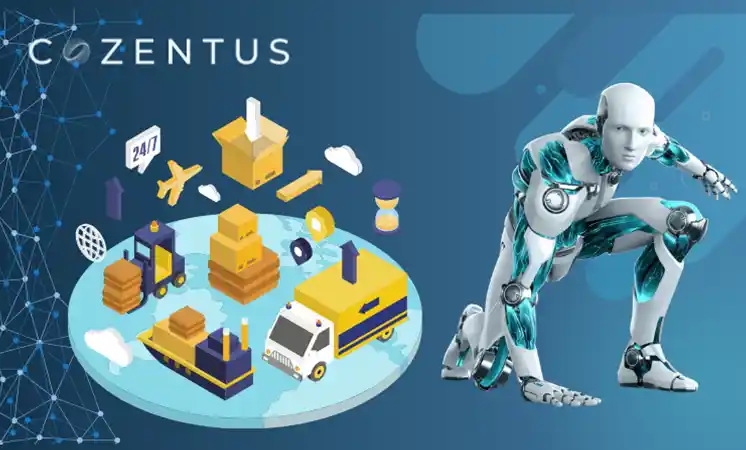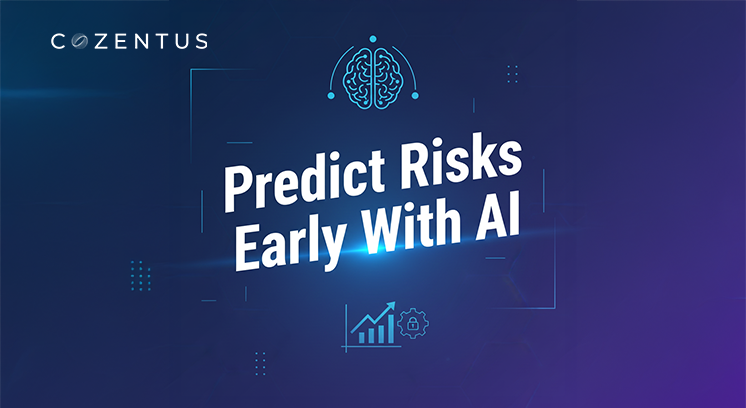
The much-anticipated delivery notification that comes up right on plan sounds on your phone. However, have you ever wondered how organizations manage to deliver the correct goods to the right location? Supply chain management makes this possible by ensuring everything goes as planned. Supply chain visibility is now becoming smarter and more effective thanks to machine learning, which helps it adjust to the constantly shifting needs of the modern business world.
A report by McKinsey says that AI could greatly boost growth. To stay competitive, many organizations now use machine learning. It improves their operations and reduces costs.
In this article, we will discuss how machine learning is used in supply chain automation. It is used for successful supply chain operations. Discover the uses, benefits, and advantages of using ML. It makes business processes efficient.
Top Use Cases of Machine Learning in Supply Chain

To analyze historical data, demand forecasts, and lead times, we need machine learning. It can help predict inventory needs by accounting for key factors. To address these issues centrally, consider using modern third-party risk management software. This lowers storage costs for groups, improves visibility, and lets them make informed choices.
1. Route Optimization
Real-time delivery route optimization is made possible using machine learning. This advanced strategy considers factors including delivery windows, weather, and traffic patterns. The outcome? Lower fuel costs and quicker delivery times.
2. Real-Time Visibility
Machine learning platforms use data from sensors, GPS trackers, and other sources to provide real-time visibility. Real-time location updates and the state of shipments are provided via this integration. This approach to transparency enables the ability to make well-informed decisions, which guarantees the smooth operation of supply chains even in the face of unexpected challenges and disruptions.
3. Demand Forecasting
Machine learning technology helps to predict demand by analyzing market trends, historical data, and other external factors. This prevents problems like having too much or too little stock. By identifying emerging patterns, businesses can adjust their production and distribution to meet customer demand effectively.
4. Inventory Management
Keeping your inventory and supply chain in balance is essential for seamless logistics operations. While having too much inventory can tie up your funds, not having enough can leave you short when your customers most need your products. This is where machine learning (ML) really makes a huge difference. ML uses intelligent decisions with the help of data, which helps to solve this complex issue. It monitors sales information, identifies patterns, and even accounts for weather projections.
5. Predictive Maintenance
Machine learning can predict maintenance requirements by collecting and analyzing data. It uses sensors and road conditions. Thus, it allows companies to reduce costs and minimize downtime.
6. Quality Control
Machine learning in supply chain can identify visual patterns and monitor quality control processes. This can enhance physical inspection using large-scale dataset analysis. Also, it can separate broken goods from shipments. This lessens returns and replacements and assists firms in addressing the problem of customers receiving damaged items.
7. Fraud Detection
Machine learning models are crucial for detecting irregularities and issuing instant alerts, enhancing operational security. They can detect fraudulent activities that were previously undetected, protecting organizations from fraud and possible breaches of client data.
8. Last-Mile Delivery
Machine learning optimizes last-mile delivery by considering factors like product size, traffic conditions, and delivery times. This enhances fast and effective deliveries and boosts customer satisfaction.
9. Risk Mitigation
A major component of effective supply chain management is identifying risks and mitigating them. Machine learning can identify and forecast potential risks by examining a variety of data sources. Companies that focus on maintaining things running smoothly can reduce costs through cutting downtime and foreseeing possible hazards.
10. Sustainability
Machine learning helps reduce carbon footprints and promotes environmentally friendly operations in the supply chain by optimizing routes and logistics processes.
Key Benefits of Utilizing Machine Learning in Supply Chain Operations
From cost savings to improved supply chain forecasting, fast deliveries, improved customer experience, and more, machine learning is offering unprecedented value to supply chain operations. Let's look at some of them:
- Improved Efficiency
- Cost reduction
- Real-time tracking and visibility
- Reducing manual work
- Boost the customer experience
- Make informed decisions
- End-to-end scalability and adaptability
- Prediction of delivery
- Fraud detection and safety
- Seamless logistics operations across borders
Challenges in Adopting ML in SCM
1. Data Quality
ML is mostly dependent on data. Because supply chain data is not complete, there could be a danger. The lack of required information can affect the predictions. This issue can be addressed using cloud-computing technology.
2. Change Management
It takes successful change management to integrate machine learning into the present supply chain process. Quick changes can make it more difficult to use ML technologies efficiently.
3. Implementation Costs
ML implementation in the supply chain may be expensive. This includes collecting data, environmental conditions, and labor-related expenses. Even though ML might be the best choice, the procedure may be impacted by the ROI. To address this issue, a verified staff or outsourcing vendor can be the best solution for cost-effective implementation.
4. Security Concerns
You must secure sensitive data, including customer and pricing information. Effective safety precautions should be put in place to ensure compliance and protect against breaches.
5. Compliance with Regulations
Businesses in the supply chain and logistics sectors have to deal with a challenging regulatory landscape. Machine learning (ML) and regulatory compliance management systems can be used to streamline processes and maintain legal compliance.
Steps to Implement ML for Your Supply Chain Operations
There are certain steps to follow to implement machine learning in your supply chain operations:
- Understand your entire supply chain's structure
- Establish transparent business KPIs and calculate ROI
- Ensure effective ML engineering process
- Evaluate the functional operations
- Choose the right tech stack
- Develop, test, and optimize models
- Deploy and retain
- Monitor performance
Why Choose Cozentus for Automation Services?
Cozentus is a trusted logistics service provider of supply chain management applications. We offer complete technology solutions for logistics companies and diverse industries. These include carrier booking, fleet tracking, and many more automation services.
We build custom development solutions from scratch and modernize them as per the client's requirements. We deliver our services at an affordable price that aligns with the client's budget.
Wrap Up

Thus, owners can now use machine learning as a transformative solution. It brings small advancements. Now, ML-driven supply chain solutions are changing how companies operate, from real-time tracking to risk reduction.
ML is now vital in supply chain management in today's landscape. As we have seen, it helps businesses cut costs, make data-driven decisions, and give a great customer experience. AI and ML-powered data processing helps supply chain and logistics firms analyze big data sets fast, it drives better route optimization and enhances inventory management.
At Cozentus, we deliver AI, ML, IoT, and cloud computing. We also offer advanced analytics and many other application services. By leveraging our modern solutions, businesses can navigate the complexities of the supply chain landscape with agility and confidence.
Recent Post
Subscribe to our newsletter
Stay updated on latest trends and news in the supply chain and logistics industry
Join our mailing list for monthly updates
Download Reports
AI-Powered Intelligent Document Processing -Your Launchpad to Digital Transformation
Download






